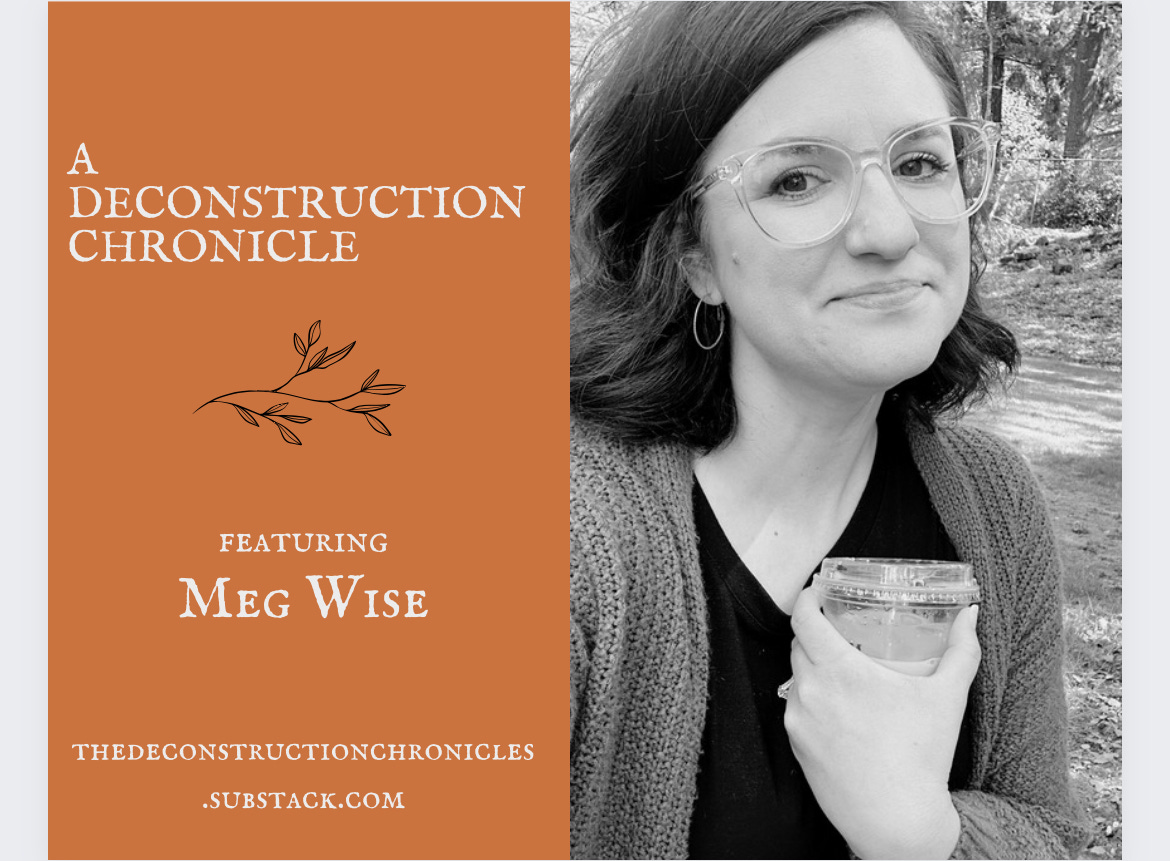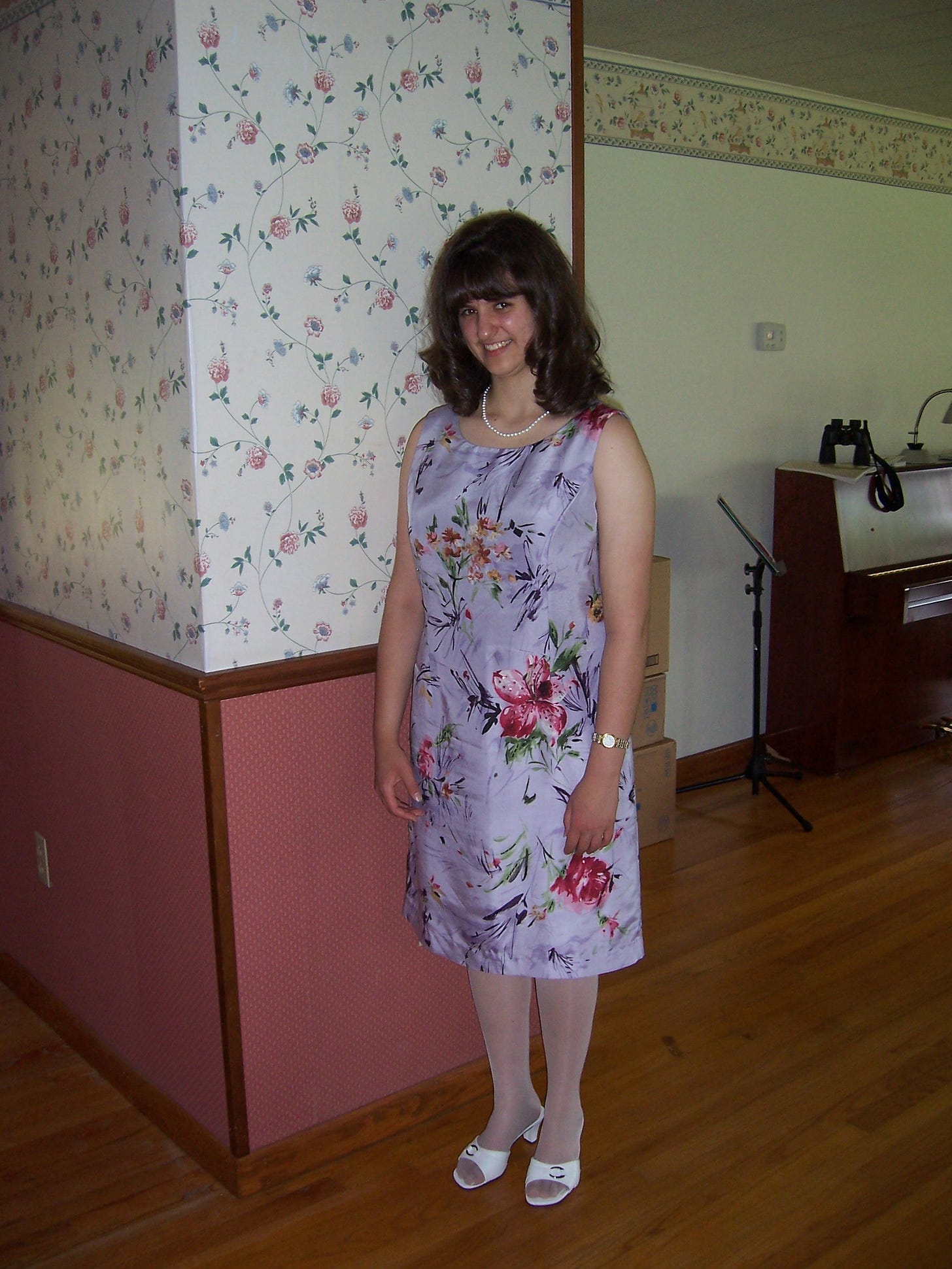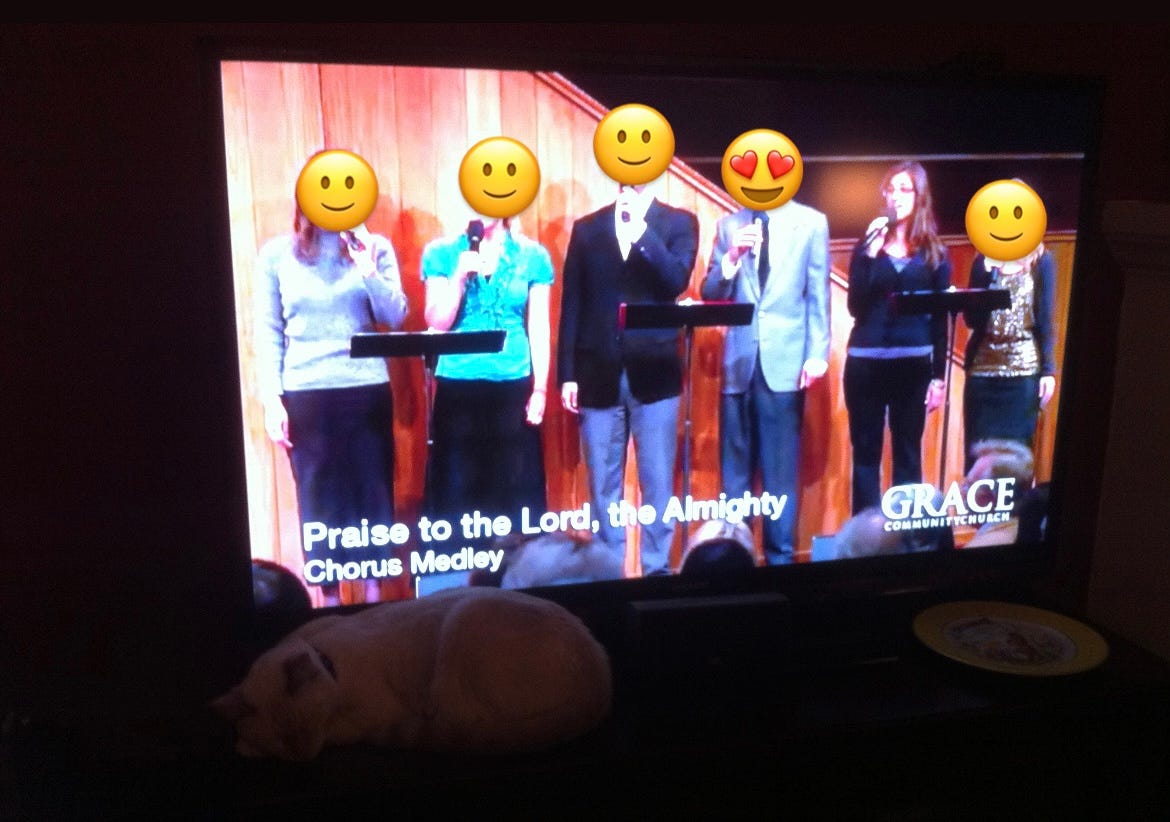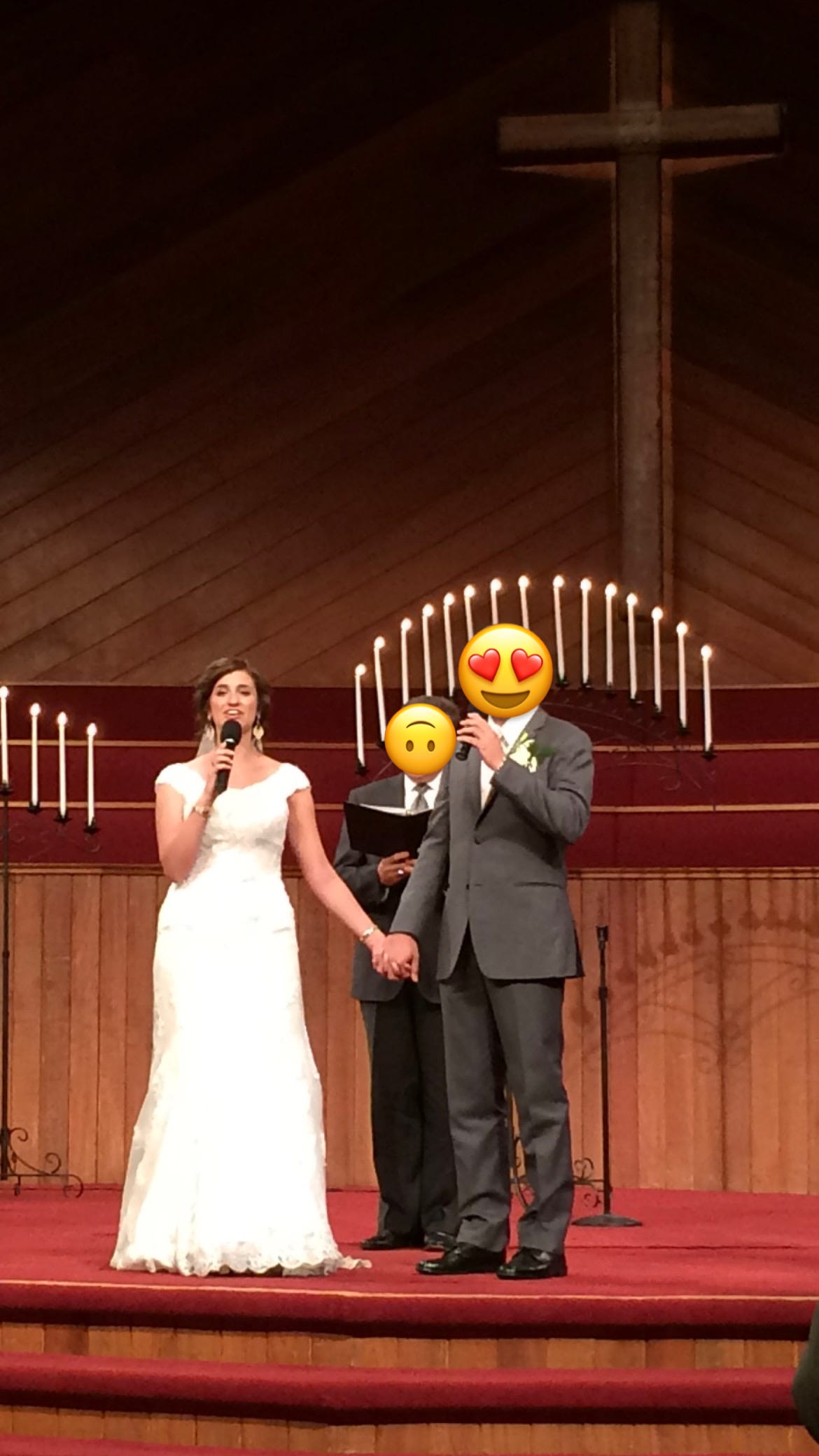I don’t remember a time I didn’t believe in Jesus. I prayed the sinner’s prayer at age 3. I confessed Jesus is Lord at age 9 and believed in my heart God raised him from the dead. I believed I was saved by grace through faith. I was baptized at age 13. I believed I was a sinner in need of a savior. I repented of my sin continually. I viewed every trial as sanctification. I cared so much.
My dad became a Protestant (after being raised Catholic) at John MacArthur’s church in the late 1970’s. My mom was raised in a Dutch Reformed Church and they met while both employed at a Christian school. The school where MacArthur’s children attended. My father was 28 and my mother was 20. While they didn’t attend MacArthur’s church together, they remained in adjacent circles. My childhood church boasted pastors who attended MacArthur’s seminary. The elders attended MacArthur’s annual pastoral conference. One of the elder’s daughters was best friends with a girl at MacArthur’s church who is the sister of my now husband. I met the brothers of author Joshua Harris when they held their first The Rebelution Conference at my church. The current chairman of the elder board at MacArthur’s church has been one of my dad’s closest friends for 45 years.
I was homeschooled kindergarten-high school, and while I desperately wanted to just get married and have a family (I wrote a three point essay about why women should be homemakers as my senior paper), I attended The Master’s University (MacArthur’s college). I studied music, an appropriate area of study for a woman. I attended MacArthur’s church my sophomore year and was quickly welcomed into the inner circle. I dated MacArthur’s nephew and was friends with his granddaugher. My “second parents” who treated me like the daughter they never had were an elder and his wife. I was engaged to a seminary student who abused me physically, emotionally, and spiritually. I sang in the choir and the evening service band, where I met the man I married. He had grow up at MacArthur’s church, his mother and grandparents both sang in the choir. His aunts sang in the choir. I was passionate. I was committed. I was completely invested. It was my Omelas.
This is me, at my high school graduation.
This picture is in John MacArthur’s official biography by Iain H. Murray.
Me, singing at an evening service in 2012. My now husband is singing next to me.
My husband and I singing at our wedding.
All of this shows how connected I was to John MacArthur but what of my own faith?
My own faith was riddled with anxiety and doubt, being told from a young age that I was a horrible sinner and deserved hell unless I followed Jesus the right way. I must subjugate myself to men in order to be a godly woman. I must sacrifice my autonomy and agency in order to be deemed worthy of salvation. I must placate the men and view my pastors as the most wise and godly to prove myself wise and godly myself. I was sheltered, programmed, brainwashed to believe a certain way. And yet? I continued to choose it. Because I cared so much. Because I wanted to please Jesus. And this is how I did it.
It was real faith. It was the only faith. The only faith I thought could exist. Filled with oppression and shame and heavy burdens. I was as happy as I knew I could be. It was all I knew. All I was allowed to know.
Until 2020. My church defiantly refused to follow any type of viral prevention as a deadly disease spread and killed hundreds of thousands of people. They refused to track or even test. They received direct praise from Donald Trump for defying the county’s orders. I was called a liberal for being careful, wearing a mask, and protecting my high risk husband, who already survived on ICU intubation and coma. I was newly pregnant. They condemned George Floyd for his own murder and spewed countless racist comments. People continued to sicken and die. Jan 6th happened. They stood by the insurrectionists. I finally could not be associated with that church anymore so I revoked my membership, as did my husband.
I’ve heard it all so before you say “But liquor stores were still open, churches should be too!” … I didn’t care what “the world” was doing. I cared about what my church family was doing. I had been told over and over and over again that we were to love others sacrificially. That we were to serve others to the point of exhaustion. That we were to do the hard thing. “Love God, Love Others, Do Hard Things” was a literal slogan in my childhood home. I was told we were to view all unborn life as sacred. And when the time came to do the hard thing - to love others sacrificially - to help protect their very lives - suddenly there were so many excuses and conspiracy theories that stood in the way. They couldn’t be bothered to lift a finger other than to tell me to stay home if I was high risk and in the very next breath, tell me I was living in fear and I needed to trust God more. The rubber met the road and there was nothing there. I spent my entire life subjugating myself and serving others sacrificially and suddenly, it was all just a sham. All I was good for was being used and when I was no longer useful, I was cast aside. My husband, a faithful member of the choir for a decade? His life meant nothing. My unborn child? His life meant nothing. Because they were convinced the state was trying to control them. They were convinced they were being persecuted. But they were actually persecuting us.
The next several years were full of upheaval. We could no longer afford Los Angeles, not with two children. We moved away from the city we loved. We switched careers. I continued to ask questions and uncover horrible things. Things about my church. Things about Christianity. I didn’t know if I wanted to stay. I was so, so alone. Most of my friends and family were across a deep divide and I didn’t understand what had happened. I found two friends I went to college with who were also asking questions and we clung together in the FB Dms. One of them sent me an article and said “I think this is what’s happening to us.” It was the first time I heard the word deconstruction.
I knew one of my elders had a popular twitter account so I created an account in 2020 to find out what was going on at my church. And I stumbled upon what was then called “weird Christian twitter.” Suddenly, I wasn’t alone anymore. And I stayed.
Deconstruction is what I call the process by which I took apart and reevaluated everything I had been taught by Christians up to that point. I had been taught the Bible for three decades but always through a patriarchal lens. I knew what it said so when I switched lens, it was easy for me to see how much scripture had been twisted to uphold straight, white men within American Evangelicalism. The only Christianity I had ever known.
I like to describe deconstruction like a burrito. I’m the burrito in this analogy and my worldviews are the filling. Some things are great, like the beef, but others are gross, like the raw onion. By deconstructing my burrito and picking out the onions, my burrito will never look the same. But it will taste so much better.
So what does my Christianity look like, now that I’ve deconstructed? Some of it looks the same. Some of it doesn’t. I truly believe I’m discovering the true heart of God. Many conservative Christians are so angry at that I’ve found a Christianity with a larger table, as Rachel Held Evans would have said. A Christianity that is inclusive, not exclusive. A Christianity that welcomes with curiosity, not judgment. A Christianity with light burdens and an easy yoke. A Christianity free of oppression.
All my heart, Meg.
You can follow Meg here:









'My dad converted from Catholicism to Christianity'... Which I guess is how Evangelicals see it?
Imagine weird christian twitter being a better witness than the guy with his name on the front of the Bible.
I’m so glad you shared your story. It takes bravery, especially considering some of the people who will undoubtedly see it. I hope that more read it and decide to share their own stories—or at least understand that they’re not alone.